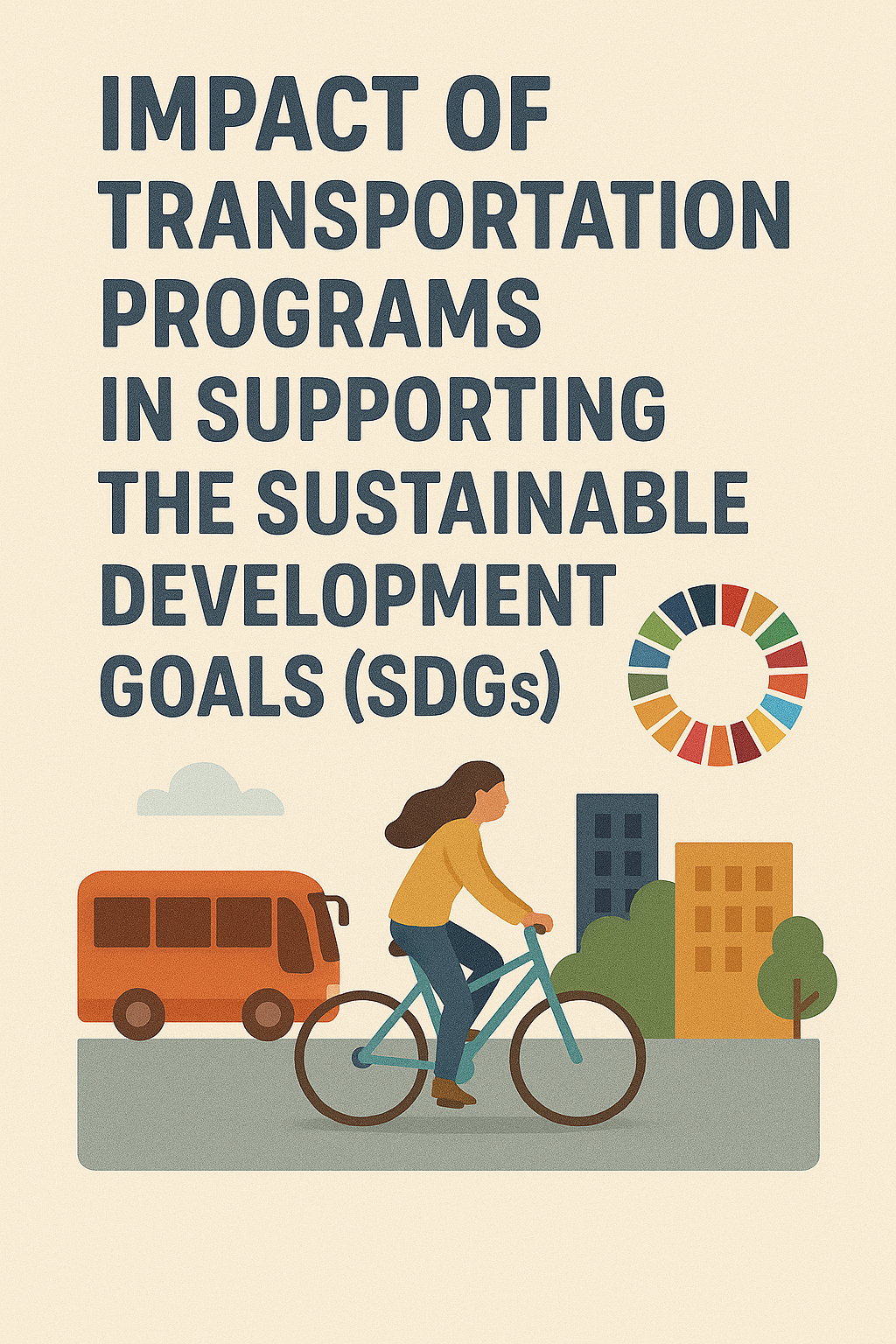Pedestrian Path Policy on Campus (TR.8)
Description: 2. Separator between the road for vehicles and the pedestrian path. 3. Ramps and guiding blocks that have a suitable design for pedestrians having physical disabilities.






Description:
The university has undertaken a wide range of sustainable transportation programs that contribute significantly to the achievement of the 17 Sustainable Development Goals (SDGs). These initiatives reflect a strong institutional commitment to low-carbon mobility, reduction of air pollution, and the creation of safe, inclusive, and accessible transport systems. Key programs include:
These efforts directly support SDGs 3, 4, 7, 9, 11, 12, 13, and 17, and contribute indirectly to others, including:
SDG 13 – Lowering carbon emissions through low-impact transportation
SDG 3 – Reducing exposure to air pollution and promoting healthy, active lifestyles
SDG 4 – Ensuring inclusive access to education through safe and reliable campus transport
SDG 7 – Promoting the use of clean energy in transportation
SDG 9 – Supporting innovation in sustainable transport infrastructure
SDG 11 – Building inclusive, safe, and sustainable urban mobility systems
SDG 12 – Encouraging responsible use of resources through shared mobility